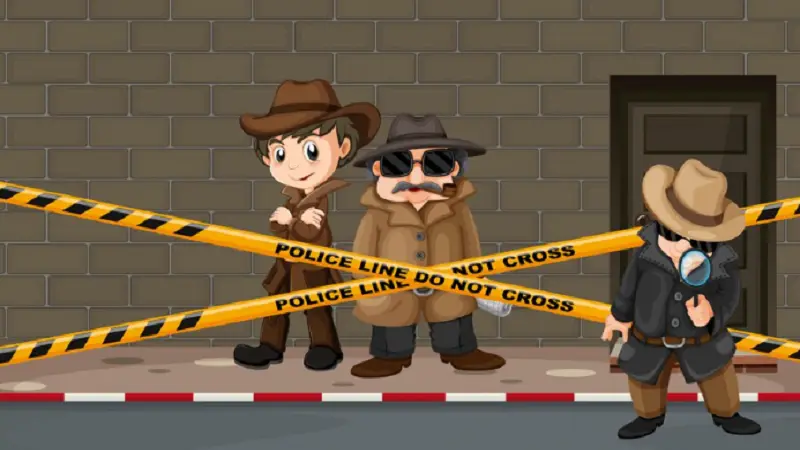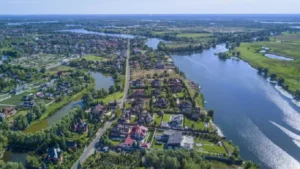Kankakee Mugshots Zone: Understanding the Trend and Its Impact on the Community

What Is the Kankakee Mugshots Zone?
The Kankakee Mugshots Zone is an online platform where people can access recent mugshots of individuals who have been arrested in the Kankakee area. Mugshots are typically photos taken by law enforcement agencies after an individual is arrested, often for criminal activity. These photos, along with accompanying arrest records and charges, are often made publicly available, either through government databases or private websites.
The Kankakee Mugshots Zone specifically serves as a repository for these mugshots, frequently offering details about the circumstances of the arrest, such as the alleged crime, bond information, and sometimes additional background information on the individuals. This kind of platform is not unique to Kankakee—many other cities and counties across the United States have similar websites or Facebook pages—but the local nature of the Kankakee zone makes it particularly relevant to residents of the city and surrounding areas.
Why Do Mugshots Get Published?
Mugshots are generally published by law enforcement agencies for transparency and public safety. In many states, including Illinois, mugshots are considered public records once the person has been arrested. Publishing these images can serve a variety of purposes:
- Public Awareness: By releasing mugshots and arrest details, the authorities keep the public informed about criminal activities in their community. This is especially important for people living in neighborhoods affected by crime, as it helps them be more vigilant.
- Deterrence: Publicizing mugshots can act as a deterrent to potential criminals. The fear of public humiliation might discourage some individuals from engaging in criminal behavior.
- Transparency: Governments and law enforcement agencies argue that making mugshots publicly available ensures transparency in the criminal justice system. If someone is arrested, their mugshot is considered part of the public record and should, theoretically, be accessible to anyone interested.
However, despite these reasons, there has been significant debate about the ethics of publishing mugshots, especially when it comes to private companies monetizing them.
The Controversy Surrounding Mugshot Websites
While some individuals may feel that publishing mugshots is a necessary function of public safety, others argue that these platforms often do more harm than good. The debate largely revolves around whether it is ethical to publish arrest photos online, especially if the individuals have not yet been convicted of a crime.
Stigma and Reputational Damage
One of the primary concerns is the long-term stigma that can result from a mugshot being published. Even if an individual is later acquitted of the charges or has their case dropped, the mugshot remains online, accessible to anyone doing an internet search. This can have serious repercussions for a person’s reputation, affecting their employment opportunities, relationships, and social standing.
For many, an arrest does not equate to guilt, and the consequences of being publicly shamed without a conviction can be devastating. In some cases, even those who are eventually found innocent may find it nearly impossible to escape the lasting damage caused by their mugshot being associated with their name on the internet.
Monetization of Mugshots
A significant issue with sites like the Kankakee Mugshots Zone is the potential for exploitation. Many mugshot websites generate revenue by charging individuals a fee to have their mugshot removed from the site. While this practice is legal, it raises questions about fairness and exploitation. People who are arrested, especially for minor offenses or false accusations, may find themselves in a situation where they have to pay a fee to clear their name. This practice has led to calls for reform, with some states and cities pushing for legislation to make it harder for mugshot websites to profit from the public release of these images.
Legal Considerations
In Illinois, as in many other states, mugshots are considered public records once an individual is arrested. However, the law does not always account for the potential harm caused by publishing these images. In response to growing concerns, some states have passed laws to restrict the publication of mugshots or make it more difficult for companies to charge fees to remove them. Illinois does not currently have laws that prevent mugshot websites from charging for removal, but there have been efforts to address the issue through legislation.
For those in Kankakee, it’s important to understand that while mugshots are public records, the potential for harm remains a significant issue, particularly if individuals are falsely accused or not convicted of the charges they were arrested for. In such cases, the lasting damage of having one’s mugshot available online can outweigh any potential benefit of public awareness.
How to Navigate the Kankakee Mugshots Zone
For those who want to access the Kankakee Mugshots Zone, it’s important to approach the platform with caution. While mugshots can provide information about individuals who have been arrested, they do not indicate guilt. If you are looking for mugshots or information about a specific individual, be sure to verify the details through reliable sources such as local news outlets or official court records.
If you find your own mugshot or the mugshot of a loved one on the website, you can contact the website administrators to inquire about the process for having the image removed. Many websites allow individuals to request removal after a certain period or after the charges have been dropped or dismissed. However, as mentioned earlier, some sites may charge a fee for this service.
The Impact on the Kankakee Community
In the Kankakee community, as in many others, the publication of mugshots can have mixed effects. On one hand, it can provide a sense of transparency and help keep the public informed about local crime. On the other hand, it can contribute to a culture of shaming, where individuals who have been arrested are treated as guilty before their trial.
The broader impact of the Kankakee Mugshots Zone can be seen in how it shapes perceptions of crime in the area. It can create an atmosphere of fear and mistrust, even if the underlying crime rate has not necessarily increased. Furthermore, the online availability of mugshots may skew the public’s perception of who is most likely to be involved in criminal activity, often leading to the targeting of certain groups based on race, class, or other factors.
Conclusion
The Kankakee Mugshots Zone, like many similar platforms, serves as both a reflection of the transparency of the criminal justice system and a source of ongoing controversy. While there are valid arguments for the public availability of mugshots, the potential harm to individuals, especially in cases where charges are dropped or individuals are acquitted, cannot be ignored.
As the conversation around the ethics of publishing mugshots continues, it’s important for communities like Kankakee to balance the need for public awareness with the recognition that everyone is entitled to a fair trial and the presumption of innocence until proven guilty. Whether or not mugshots should be freely published remains an open question, but it is clear that the lasting effects on those featured in these images must be carefully considered.
In the end, we must ask ourselves: Is it enough to know who has been arrested, or should we focus more on who has been wrongfully harmed by the system? The Kankakee Mugshots Zone offers a window into this complex issue, encouraging both local residents and broader society to think critically about the role of public records and the consequences of digital shaming.
See More: Tech Besto




